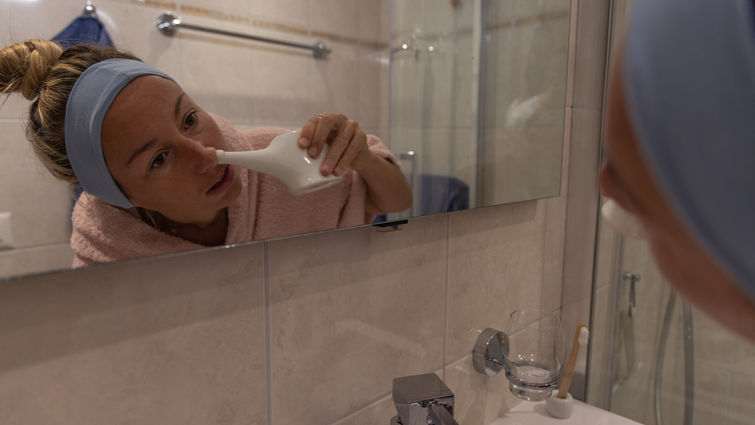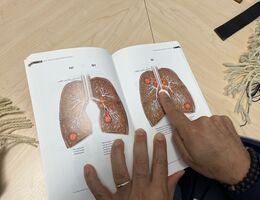

When it comes to managing flu symptoms, some of the best advice comes from timeless remedies you may already know. According to Karen Studer, MD, chair of the department of preventive medicine at Loma Linda University Health, staying hydrated and getting plenty of rest remain fundamental strategies for recovery.
“What your mother probably told you, ‘drink lots of water and rest,’ is still good advice,” she says.
Studer recommends several tips for symptom relief:
- Sleep: Prioritize rest to allow your body to heal.
- Acetaminophen: Use this over-the-counter medication, acetaminophen, to reduce fever.
- Honey: A tablespoon of honey can help relieve a cough. (Do not give honey to children under one year old.)
- Saline Nasal Irrigation: Use a saline spray or neti pot to clear sinuses. Follow instructions carefully to avoid introducing bacteria into the sinuses and ensure the neti pot is properly disinfected.
- Zinc Lozenges: Early research suggests zinc lozenges may help reduce the duration of colds if taken at the onset of symptoms.
- Vitamin C and D: Consuming fruits high in vitamin C, such as oranges, can provide beneficial nutrients. Studer cautions against vitamin C supplements or IV infusions outside of hospital settings, noting potential complications and limited efficacy.
- Reduce Sugar Intake: Refined sugars can suppress the immune system and delay recovery.
Studer also advises caution when using over-the-counter congestion or cough suppression medications, especially in children, and notes that remedies like echinacea and elderberry have not shown consistent benefits for cold or flu symptoms.
When to Seek Emergency Care
While most flu cases can be managed at home, certain symptoms warrant immediate medical attention.
For Adults:
- Difficulty breathing, chest pain, or severe wheezing that does not improve with medication
- Fever over 103°F that does not respond to medication
- Persistent vomiting or diarrhea leading to dehydration
- Sudden dizziness, confusion, severe headache, or stiff neck
- Signs of a secondary bacterial infection, such as sudden worsening of symptoms after initial improvement
- Blue or gray skin, lips, or nails
For Children:
- Fever of 100.4°F or higher in infants under three months
- Rapid or labored breathing in toddlers and older children, indicated by nostril flaring or belly pulling with each breath
- High fever (104°F or more) lasting over three days
- Signs of dehydration, such as dry mouth, no tears, or fewer wet diapers
- Lethargy, irritability, or difficulty waking up
- Seizures, persistent vomiting, severe ear pain, or rash accompanied by fever
Patients who have been exposed to serious contagious diseases, whether through travel or close contact, should also consider seeking medical attention.
According to Studer, one common mistake patients make is consuming poor-quality foods, such as refined sugars and fast food, which can delay recovery. Additionally, failing to rest adequately can worsen symptoms and prolong illness.
Preventive Measures During Flu Season
To minimize the risk of severe flu symptoms or complications, Studer emphasizes preventive steps:
- Handwashing: Regular and thorough handwashing remains the best defense against spreading cold and flu viruses.
- Masking: For individuals who are elderly or have compromised immune systems, wearing a mask in crowded public spaces offers additional protection.
- Healthy Habits: Adequate sleep, stress management, nutritious food, and regular exercise strengthen the immune system and help it operate at its peak.
Consider a Video Visit:
Many symptoms can be evaluated virtually, which minimizes the risk of spreading illness to others and helps avoid wait times in a clinic. Check if your provider offers this option. Mask up for in-person visits if a video visit is not available or appropriate.
Understanding when and where to seek care can help you manage your health effectively during cold and flu season. Schedule your video visit today: https://lluh.org/patients-visitors/patients/video-visits


